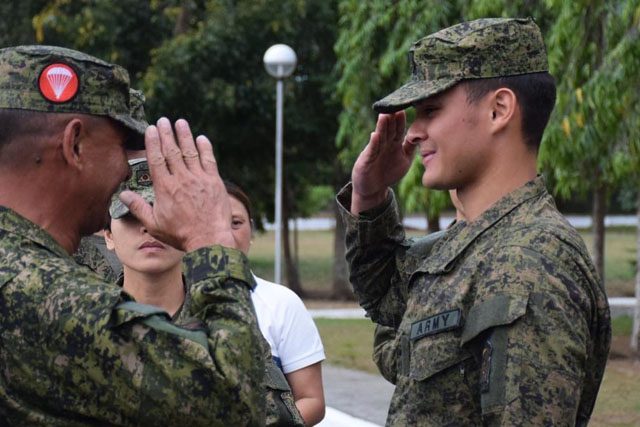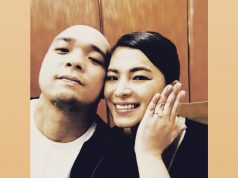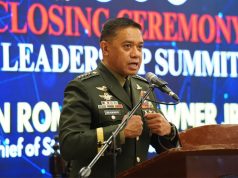The view of actor Matteo Guidicelli on joining the military sparked conversations online on what it really means to be patriotic.
Guidicelli has been praising the Armed Forces of the Philippines in interviews and on his social accounts following his one-month reservist training last June.
“I had so much respect for our soldiers before. But my respect for them now is beyond words. A lot of people don’t understand. They will never understand. But the Army sacrifices so much. For who? For you,” he told CNN Philippines on July 12.
The Kapamilya star also took a jab at his critics as he encouraged other Filipinos to follow suit.
“Instead of talking smack about different issues, why not unite so we may progress to make a better tomorrow. What do you think?” he posted on Instagram last July 6.
This perception of loving the country, however, can take on a harmful form in nationalism, a sentiment and prejudice blamed for some of today’s ills.
Spoken word artist Juan Miguel Severo pointed this out on Twitter when he shared an old video clip of actress Angel Locsin.
Severo captioned it with: “This interviewee is a patriot.”
This interviewee is a patriot. pic.twitter.com/Lj1bdEGdrJ
— Juan Miguel Severo 🏳️🌈 (@TheRainBro) July 13, 2019
The video clip was part of Locsin’s interview back in 2009 on a talk show once hosted by Boy Abunda and Kris Aquino.
That year, Locsin and her sister Ella Colmenares-Sabino visited a community of Lumad, an indigenous minority, and stayed there for three days.
“Sa tatlong araw na pagstay ko dun, hindi naman yung mga Muslim o mga Kristiyano yung nag aaway talaga. Ang totoong kaaway nila yung kahirapan, yung kawalan ng lupa, saka yung cultural displacement nila dun,” Locsin said in the video.
“At sa tingin ko, mas di nila kelangan ng awa o kaya ng relief o kaya ng charity work. Ang kelangan nila yung pagkilala sa kanila bilang tao o bilang isang Pilipino,” she added.

In 2017, Locsin returned to the southern region again to visit and help the victims of the five-month Battle of Marawi in Lanao del Sur.
Arguments on patriotism
The government’s goal of making the Reserve Officers’ Training Corps program mandatory to supposedly instil patriotism and discipline to the youth was met with criticisms.
Living with the Lumad community is the best way to show patriotism, Kabataan Party-list said, and experience their daily struggles rather than train in a military camp:
“If you can serve 30 days with the military, why not try serving 30 days in a farm, a factory, in a Lumad community, or in an urban poor community to see what it’s like to struggle to be free from all forms of oppression?”
While Guidicelli’s intentions may be good, the youth-related party-list said that his call to serve the military is misplaced.
A lumad school community in Mindanao called Alcadev pointed out the track record of Filipino soldiers allegedly harassing and killing lumad leaders.
“Hello Matteo! Yes we need to make steps to progress as a nation. But the AFP? Our long history with the army tells that they’re not for a better tomorrow,” it said on Twitter.
Some those who support Guidicelli carry the notion that Filipinos can only be patriots if they joined the military.
LONG READ: The threat of a Matteo GuidicelliHere's the story: A celebrity volunteers to join the Army Reserves. He…
Posted by Andre Calabes on Saturday, July 13, 2019
Patriotism is often confused with nationalism, which is associated with the sentiment of superiority over others.
According to Grammarist, patriotism refers to the love of country but based on goodness of the government and its people.
“Patriotism is based on the belief in the inherent goodness of the system of government in a country, and the goodness of its people. The word patriotism is derived from the word patriot, from the Latin word patriota meaning fellow citizen, and the suffix -ism, meaning a system or doctrine.”
This is the direct opposite of nationalism where it is based on the beliefs of rivalry and domination.
Therefore, Filipinos can be patriots in their own way as long as what they do is for their fellow countrymen. It’s also more appropriate to be patriotic rather than nationalistic.










